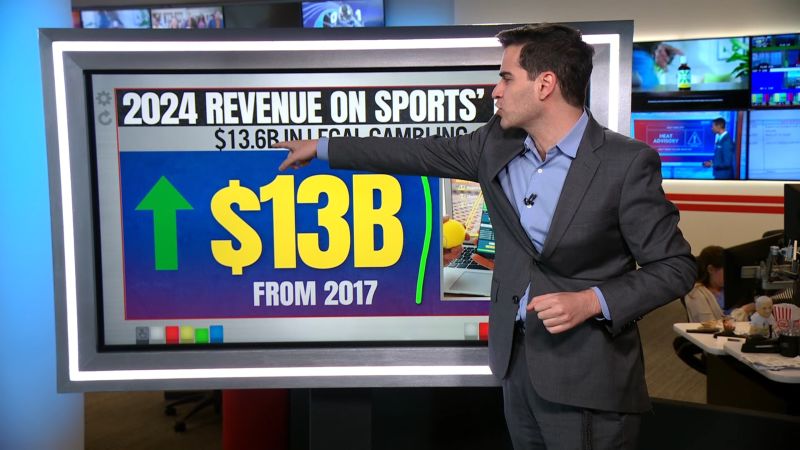The recent passage of a significant legislation by President Donald Trump has introduced a gambling provision that could profoundly impact the landscape of sports betting in the United States. This change comes as legal gambling has surged in popularity, transforming from a niche activity to a mainstream phenomenon. The implications of this new provision, particularly regarding the taxation of gambling losses, raise concerns for professional gamblers and the broader sports community.
Surge in Legal Gambling Revenue
Legal sports gambling in the United States has experienced explosive growth since a pivotal Supreme Court decision in 2018 allowed states to regulate sports betting. Prior to this ruling, Nevada was the only state where sports betting was widely legal, generating approximately $260 million in revenue from $5 billion in bets in 2017. By 2023, this figure ballooned to nearly $14 billion in revenue, with total wagering amounting to around $150 billion across the country. This growth has significantly benefitted local governments, which have collected billions in tax revenue.
New York has emerged as a major player in the sports betting arena. In 2024, the state reported over $2 billion in gross revenue from sports gambling, along with more than $1 billion in taxes. The rapid expansion of legal gambling has transformed the financial dynamics of the sports industry, creating new opportunities and challenges.
Changing Perspectives on Sports Gambling
Public opinion regarding sports gambling has shifted dramatically over the last three decades. In 1993, only 41% of Americans supported the legalization of sports betting, a stark contrast to today’s landscape where 58% favor legalizing it in their states. This shift reflects a growing acceptance of sports betting as a legitimate form of entertainment rather than a taboo.
Despite this acceptance, concerns about the integrity of college athletics remain. A significant portion of the public once believed that gambling could encourage cheating among college athletes. In 1985, 70% of Americans held this view, but by 2022, this number had decreased to 45%. This decline indicates a changing perception, although the potential for corruption in college sports still looms as a critical issue.
The recent provision in the new legislation has sparked backlash among gamblers who fear that tax implications on losses could undermine the benefits of legal sports betting. As the industry continues to evolve, the balance between regulation and the promotion of fair play will be crucial in maintaining public trust and ensuring the longevity of legal sports gambling.
The discussion surrounding sports gambling in the United States is far from over. As more states consider legislation to legalize or regulate betting, the implications of the current law and public sentiment will shape the future of this burgeoning industry. The intersection of sports, gambling, and public policy continues to captivate the nation, reflecting broader cultural shifts and economic opportunities.








































































